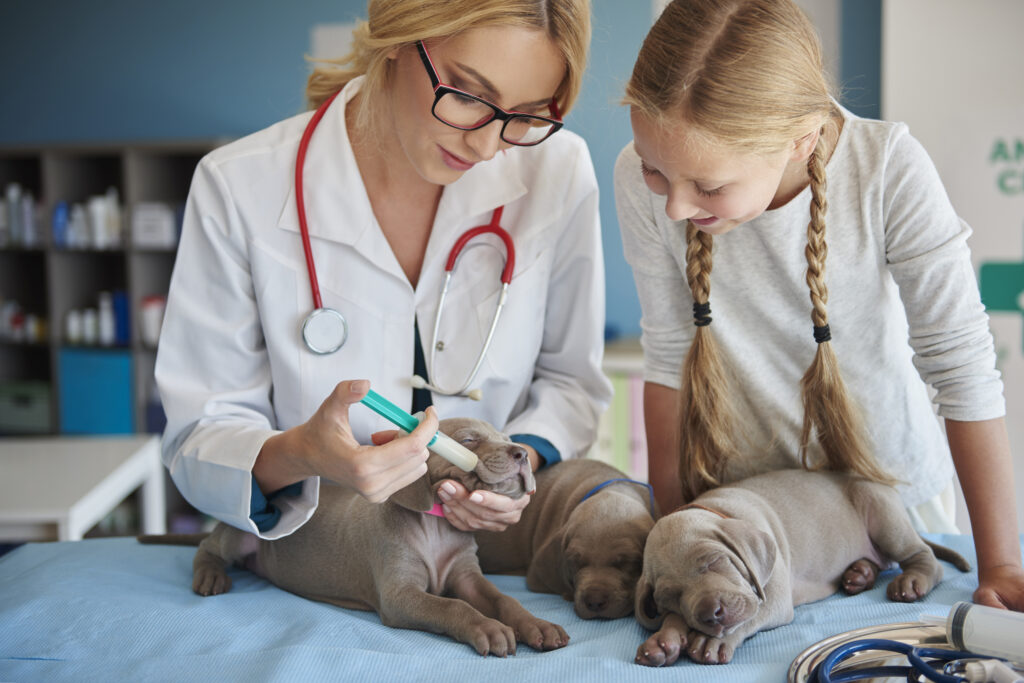As a pet owner, ensuring the health and well-being of your furry companion is of the utmost importance. While keeping your pet happy with plenty of playtime, treats, and love is essential, regular veterinary check-ups are equally critical to maintaining your pet’s overall health. These check-ups are not just for when your pet is feeling under the weather, but they play a vital role in preventing future health issues and catching any early signs of illness before they become more serious.
In this comprehensive guide, we’ll delve into the many reasons why regular vet check-ups are essential, what to expect during these visits, and how they can ultimately contribute to a longer, healthier life for your pet.
Why Regular Vet Check-Ups Are Crucial
- Early Detection of Health Issues
Just like humans, pets can suffer from a range of health problems as they age, some of which might not show symptoms until they are quite advanced. This is where regular check-ups become invaluable. A veterinarian is trained to identify subtle changes in a pet’s health that may otherwise go unnoticed by the average pet owner. By catching illnesses early, such as dental disease, kidney issues, heart conditions, or cancer, your vet can provide treatment options that are more effective and less costly than if the condition were left untreated until it became severe.
For example, some pets may hide pain or discomfort, a behavior that is common in animals, making it difficult for owners to know when their pets are unwell. Regular visits to the vet can help identify these underlying issues through physical exams, diagnostic testing, and blood work.
- Vaccinations and Preventative Care
Preventative care is one of the main reasons why regular vet visits are so important. During routine check-ups, your veterinarian will ensure that your pet is up to date on essential vaccinations. Vaccines help protect your pet from a variety of dangerous diseases, including rabies, parvovirus, feline leukemia, and distemper.
In addition to vaccinations, your vet may also discuss other preventative treatments, such as parasite control. Fleas, ticks, and heartworms can pose significant risks to your pet’s health, and your vet will recommend the appropriate medications to keep these pests at bay. Regular vet visits are also a good opportunity for your vet to assess your pet’s overall health and determine if any lifestyle changes or supplements could help maintain their well-being.
- Maintaining Dental Health
One area that pet owners often overlook is dental health. Dental disease is one of the most common health issues in pets, especially as they age. If left untreated, dental problems can lead to gum disease, tooth loss, and even more severe issues like kidney and heart disease. During a routine vet visit, your veterinarian will perform a dental check to assess the condition of your pet’s teeth and gums.
If your pet’s teeth require cleaning or further dental care, your vet will recommend the appropriate treatment. Regular check-ups also give you the chance to ask your vet for advice on how to maintain your pet’s oral health at home. Brushing your pet’s teeth, providing dental chews, and scheduling regular professional cleanings are all essential components of maintaining your pet’s dental hygiene.
- Weight Management and Nutrition
Obesity is a growing concern for pets and can lead to a host of serious health problems, including diabetes, arthritis, and heart disease. One of the key components of a regular vet check-up is assessing your pet’s weight and overall nutrition. If your pet is overweight, your vet can provide guidance on portion control, dietary changes, and exercise to help them achieve a healthy weight.
Conversely, if your pet is underweight, your vet will recommend the necessary steps to address the issue and ensure that your pet is getting the proper nutrition. A balanced diet tailored to your pet’s age, breed, and activity level can make a significant difference in their overall health and longevity.
- Behavioral Changes
Sometimes, changes in a pet’s behavior can signal underlying health problems. For instance, if your dog suddenly becomes lethargic, or your cat starts avoiding the litter box, it could be an indication of pain, stress, or illness. During a regular check-up, your veterinarian will assess your pet’s behavior and ask you questions about any changes you’ve noticed. If there are any concerning behavioral changes, your vet will work with you to determine the cause and offer solutions to help your pet.
Sometimes, behavioral changes are linked to physical problems, such as arthritis or dental pain, which a vet can diagnose and treat. In other cases, your vet may suggest working with a pet behaviorist if the changes are more related to emotional or psychological issues.
What to Expect During a Vet Check-Up
- Physical Examination
The foundation of every vet check-up is a thorough physical examination. Your vet will check your pet’s eyes, ears, teeth, skin, and coat for any abnormalities. They will listen to your pet’s heart and lungs, feeling for any irregularities. They will also examine your pet’s joints and muscles to ensure they are functioning properly. Additionally, your vet may check your pet’s temperature, heart rate, and weight to gauge overall health.
- Laboratory Tests and Blood Work
In addition to a physical exam, your vet may recommend laboratory tests, such as blood work, urine analysis, and fecal exams. These tests provide valuable insight into your pet’s internal health and can help identify issues that may not be immediately apparent from the physical exam. Blood tests can reveal early signs of kidney disease, liver disease, or anemia, while urine tests can detect urinary tract infections or diabetes. Regular blood work is especially important for senior pets, as they are more prone to health issues that can be detected through lab tests.
- Vaccination Updates
Your vet will review your pet’s vaccination history and ensure that they are up to date on the required vaccinations. In addition to routine vaccinations, your vet may recommend additional vaccines based on your pet’s lifestyle, such as vaccines for Lyme disease or Bordetella (kennel cough) for pets that are frequently in contact with other animals.
- Health Screening for Senior Pets
For senior pets, regular vet visits are even more critical. Older pets are more prone to age-related health issues such as arthritis, heart disease, and vision loss. During a senior pet check-up, your vet may perform additional screenings, such as X-rays, blood pressure tests, or ultrasound, to monitor your pet’s health as they age.
How Often Should You Take Your Pet to the Vet?
The frequency of vet visits depends on your pet’s age, breed, and overall health. Generally, pets should visit the vet at least once a year for routine check-ups, vaccinations, and preventative care. However, senior pets (typically over the age of 7) may require more frequent visits, such as every six months, to monitor any age-related conditions.
If your pet has any chronic health conditions or special needs, your vet may recommend more frequent visits to ensure that their condition is managed properly.
Conclusion: Prioritizing Your Pet’s Health with Regular Vet Check-Ups
Regular vet check-ups are one of the most important ways you can ensure your pet’s health and well-being throughout their life. From early detection of illnesses to preventative care and vaccinations, these visits play a key role in preventing potential health problems and ensuring your pet enjoys a long, happy life. By establishing a good relationship with your vet and staying on top of check-ups, you are giving your pet the best chance for a healthy and comfortable life.
If you’ve never taken your pet for a routine vet visit, now is the perfect time to start. A simple check-up could uncover issues that may go unnoticed otherwise, and early intervention can make a world of difference in your pet’s quality of life.






